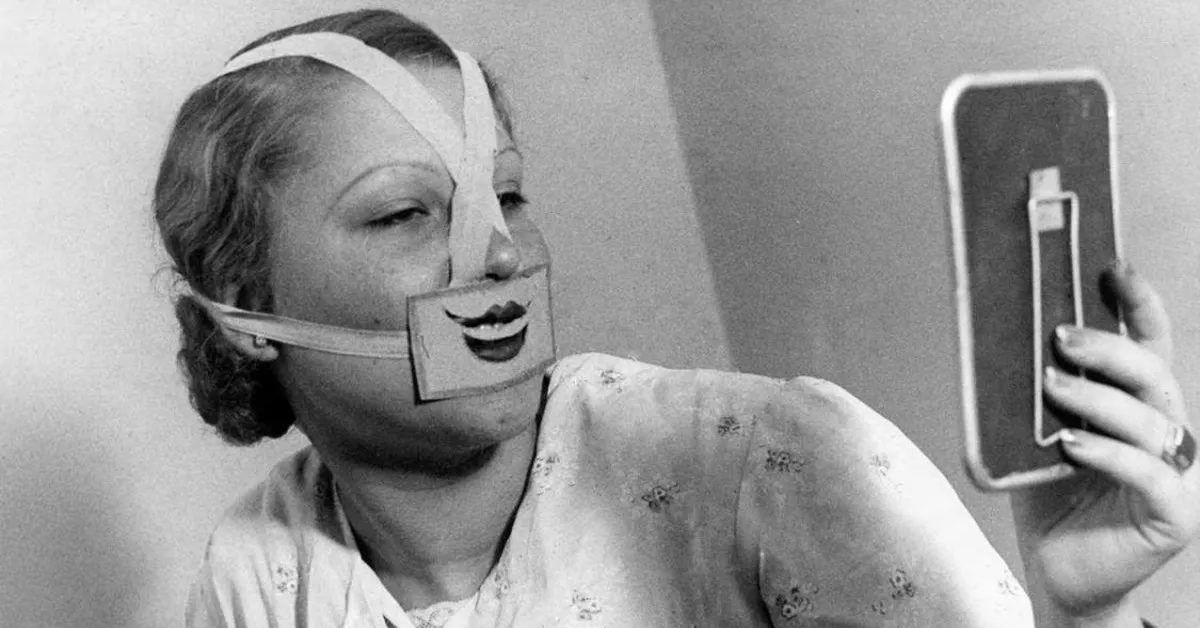Around 1937, apparently a smiling school came into existence as a result of a suicide wave in Budapest that was allegedly connected to Gloomy Sunday, a song known by the world as the Hungarian suicide song.

The beauty of Budapest is a magnet for tourists, yet for years the capital has been known as the “City of Suicides”, wrote the Australian Sunday Times of 17 October 1937. The article, entitled City of Suicide, City of Smiles, also reveals that, among other factors, the evergreen Gloomy Sunday (more about the song later), which had become world famous a few years earlier, may have played a role in Budapest having been named so.
The media quickly picked up on the theme, with Dutch, Italian, French and German newspapers writing about Rezső Seress’s song, which was by then being called a “suicide anthem”. The mood spread from Europe to America, where The New York Times reported that crowds in Budapest had jumped into the Danube because of the song. According to the Perth weekly, Professor Jeno(?) and the hypnotist Binczo had the idea of starting a smiling club to stem the suicide tide, and then, seeing its popularity, a smile school in 1937.

At the Budapest school, “students” could learn the smiles of world-famous people such as Clark Gable, Dick Powell and Roosevelt, but the instructors also guaranteed the iconic smile of Mona Lisa.
Tuition fees were determined by the difficulty level of the smile chosen. Prof Jeno said it was a great opportunity to use the methods used in the school to make Budapest a city of smiles.

Gloomy Sunday was written in 1933 by Rezső Seress, a Hungarian pianist and composer, and later had lyrics added by his friend László Jávor, a poet. The song was a melancholic lament for a lost lover, and it expressed a desire to join them in death. The song became popular in Hungary and abroad, but it also gained a notorious reputation for being linked to many suicides.
According to some reports, people who listened to the song or had references to it in their suicide notes were found dead. Some sources claim that the song was banned in Hungary and other countries because of its association with suicide.

However, the evidence for the causal relationship between Gloomy Sunday and suicide is weak and disputed. Some researchers have argued that the song was merely a reflection of the social and economic hardships that Hungary faced in the 1930s, and that the suicides were not influenced by the song but by other factors.
Others have suggested that the media exaggerated or fabricated the stories of suicides related to Gloomy Sunday, creating a self-fulfilling prophecy or a moral panic. Moreover, some versions of the song had different lyrics or endings that were not as gloomy as the original.

Rezső Seress himself suffered from depression and loneliness throughout his life. He survived the Nazi forced labor camps during World War II, but his mother did not. He also never received much recognition or royalties for his song, as he refused to leave Hungary for the USA. He committed suicide in 1968 by jumping out of a window and then strangling himself with a wire in the hospital.
The Hungarian suicide rate has traditionally (since the 19th century) been so high that Hungary was among the first European countries to start collecting statistics on the subject. Between 1955 and 1989 (during communist times), the incidence of suicides further intensified, with the country having the highest suicide rate globally in this period.
Factors contributing to this include historical and cultural influences of political oppression, economic hardship, and war, shaping a pervasive sense of pessimism. Mental health issues like depression, anxiety, and alcohol abuse are prevalent, but hindered by underfunded and understaffed services, compounded by societal stigma. Social isolation and loneliness, particularly acute in rural areas with limited opportunities, further elevate the risk of suicide by eroding a sense of belonging and purpose in life.

Photos: Het Leven, Spaarnestad Photo
Sources: 1, 2, 3, 4, 5, 6, 7
